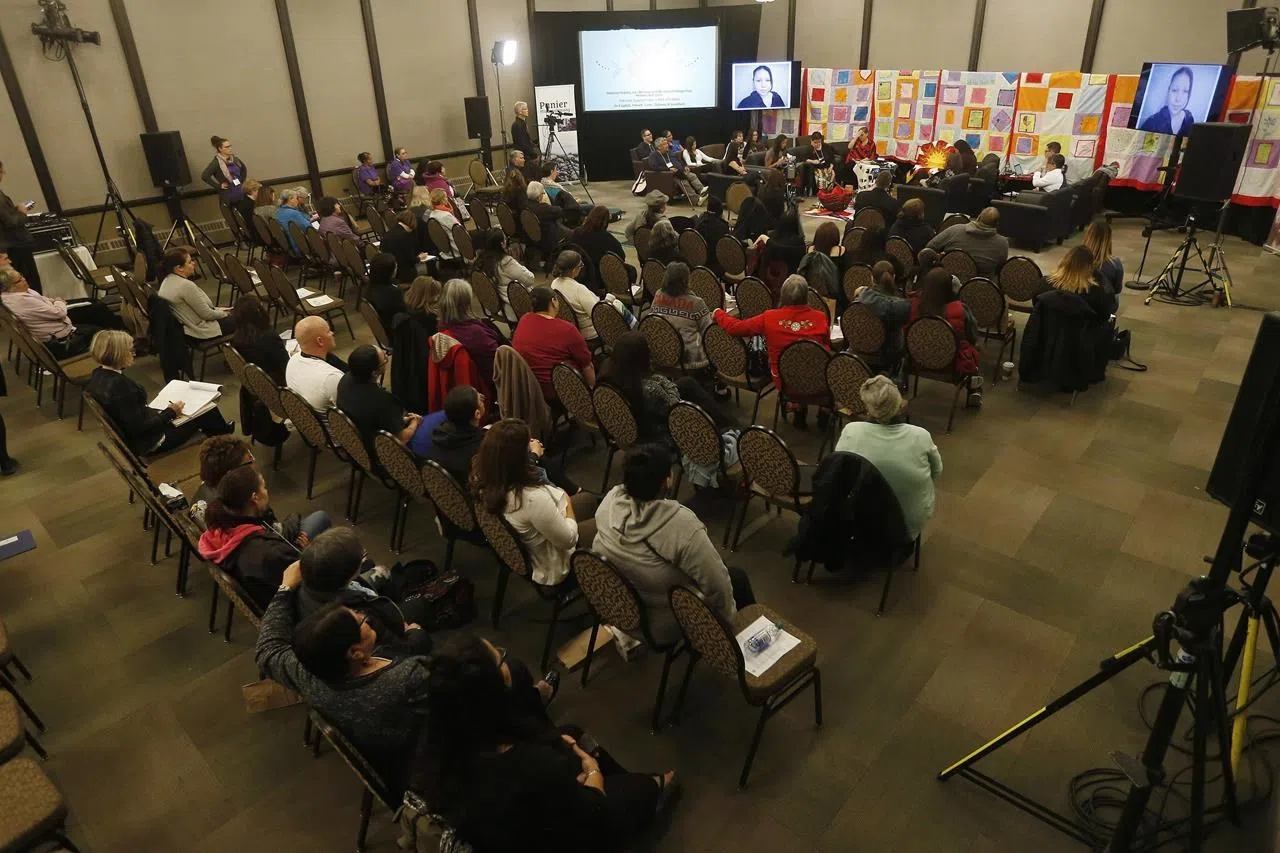
Family of Indigenous woman who was decapitated say killers walk free
WINNIPEG — Just one of the many cases of missing and murdered Indigenous women has left a Manitoba community divided, a family struggling with grief and a mistrust of the justice system, a national inquiry was told Tuesday.
On its second day of hearings in Winnipeg, the inquiry heard about the ripple effects from the killing of Roberta McIvor — a 32-year-old woman who was decapitated on the Sandy Bay Ojibwa reserve northwest of Winnipeg on July 30, 2011.
“It’s really hard on me still. I still sometimes cry myself to sleep at night,” McIvor’s daughter Justine Strong said, sobbing occasionally as she spoke.
“I try my best to be the best mother — just like her — because I know everything I did with my life, she’d be really proud of me.”
